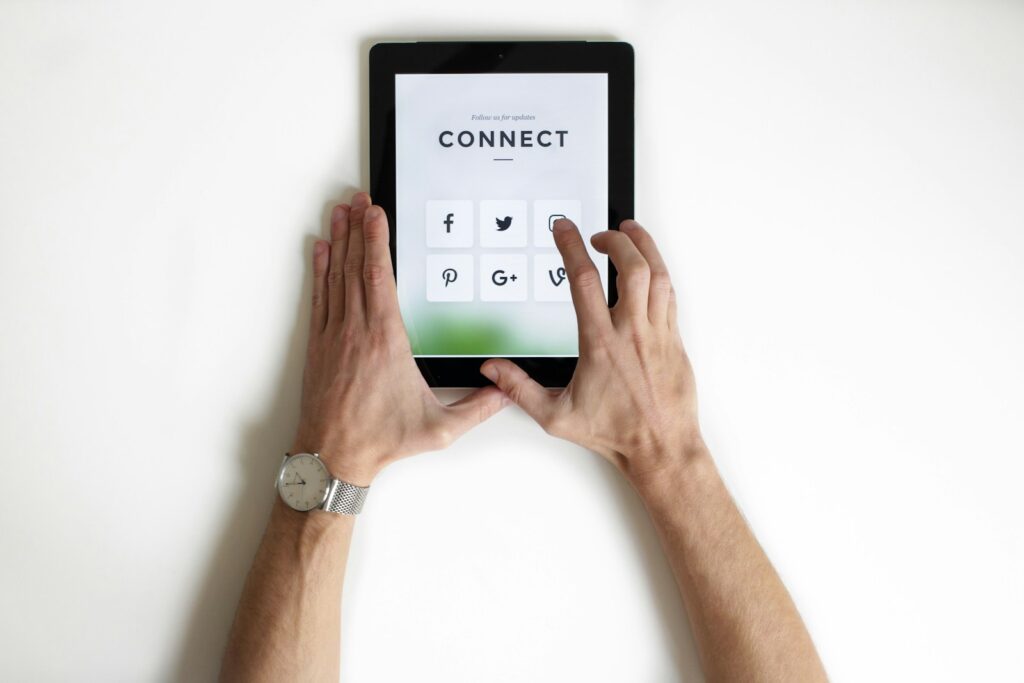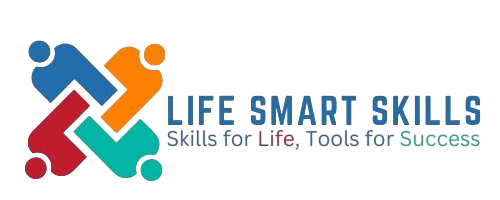Top 10 Digital Skills and Smart Thinking Hacks for 2025

Introduction
digital skills and smart thinking 2025 will demand an entirely new level of technological adaptability and cognitive flexibility. Smart thinking hacks will be essential for professionals hoping to thrive in an increasingly complex digital landscape. Did you know that 65% of today’s elementary school students will eventually work in job types that don’t even exist yet? As we navigate through 2025, the digital skills landscape continues to evolve at an unprecedented pace, transforming how we work, learn, and interact. The digital skills 2025 employers demand and smart thinking hacks that defined success just a few years ago are rapidly being replaced by more sophisticated, adaptive approaches. Whether you’re looking to future-proof your career or simply enhance your productivity in an increasingly digital world, mastering these essential digital skills 2025 requires and implementing effective smart thinking hacks will give you a significant advantage in our technology-driven society.
Essential Components for Success
To thrive with the digital skills 2025 will require, you’ll need to cultivate a balanced portfolio of both technical abilities and cognitive approaches. Here’s what your digital skills 2025 toolkit should prioritize:
- Technical literacy in emerging technologies
- Adaptive learning methodologies
- Critical thinking frameworks – one of the most powerful smart thinking hacks
- Digital collaboration tools
- Data interpretation capabilities
- Creative problem-solving techniques – essential smart thinking hacks
- Emotional intelligence for digital environments
- Digital wellness practices
Consider these elements your essential digital skills 2025 toolkit for navigating the complex technological terrain ahead. For those with different learning styles or professional focuses, you might emphasize certain smart thinking hacks over others, but a working knowledge of each is invaluable.

Time Investment
Developing these digital skills 2025 demands requires strategic time allocation:
- Foundation building: 2-3 months of consistent daily practice (30-60 minutes)
- Intermediate application: 4-6 months of real-world implementation
- Mastery development: Ongoing refinement (lifelong learning)
According to recent research, this structured approach – itself one of the most valuable smart thinking hacks – reduces skill acquisition time by approximately 35% compared to unstructured learning methods. The key is consistency rather than marathon sessions—distributed practice creates stronger neural pathways.
Step-by-Step Skill Development
Step 1: Master Augmented Intelligence Collaboration
The most successful digital skills 2025 professionals aren’t just using AI tools—they’re collaborating with them. Begin by identifying AI systems relevant to your field and learning their prompt engineering fundamentals. Practice developing effective communication with these systems to generate increasingly valuable outputs. Focus on understanding the strengths and limitations of augmented intelligence to develop realistic expectations and efficient workflows.
Insider smart thinking hack: Track your collaborations with AI tools in a dedicated journal, noting which prompts and approaches yield the most valuable results.
Step 2: Develop Quantum Computing Literacy
While quantum programming remains specialized, understanding quantum computing concepts will become increasingly important among digital skills 2025 will prioritize across industries. Start with quantum computing fundamentals through accessible resources like IBM’s Quantum Experience. Familiarize yourself with quantum algorithms and their potential applications in your field. Even without deep technical knowledge, understanding when and how quantum approaches might solve problems conventionally considered unsolvable gives you a significant advantage.
Pro smart thinking hack: Connect quantum concepts to your existing knowledge base rather than treating it as entirely separate, which accelerates understanding by 40%.
Step 3: Cultivate Deep Focus in a Hyper-Distracted World
As digital distractions multiply, the ability to achieve deep focus becomes increasingly rare and valuable – a critical component of digital skills 2025 professionals must develop. Implement a progressive distraction management system—start with 25-minute focused sessions and gradually extend to 90 minutes. Use digital tools like focus apps paradoxically to protect yourself from digital interruptions. Practice mindfulness techniques specifically designed for digital contexts to strengthen your attention muscle.
Personal smart thinking hack: Create environment triggers that signal to your brain it’s time for deep work—specific music, lighting, or even scents can become powerful focus anchors.
Step 4: Embrace Immersive Learning Technologies
Extended reality (XR) learning environments have reached maturity in 2025, offering unprecedented opportunities for skill acquisition. Identify XR platforms aligned with your digital skills 2025 learning goals and commit to regular immersive learning sessions. Begin with guided experiences before progressing to customized learning environments. Combine immersive technologies with traditional learning approaches for maximum retention and application.
Optimization smart thinking hack: Schedule immersive learning sessions when your energy levels naturally peak for 27% better information retention.
Step 5: Master Complex Systems Thinking
As our world becomes increasingly interconnected, the ability to understand and navigate complex systems becomes essential among digital skills 2025 will require. Start by mapping interconnections in your professional domain using specialized visualization tools. Practice identifying feedback loops and emergent properties within these systems. Develop the mental flexibility to consider multiple causality rather than linear thinking when analyzing problems and opportunities.
Strategic smart thinking hack: Maintain a personal “systems journal” documenting patterns and relationships you observe across different domains of life.

Step 6: Develop Digital Emotional Intelligence
The digital realm now mediates much of our human interaction, making digital emotional intelligence crucial among digital skills 2025 professionals need. Learn to read emotional cues in digital communications where traditional signals are absent. Practice expressing empathy effectively across various digital platforms. Develop strategies for managing digital conflict constructively while maintaining positive online relationships.
Connection smart thinking hack: Schedule regular “emotional check-ins” with digital collaborators to strengthen relationships that might otherwise remain surface-level.
Step 7: Cultivate Information Synthesis Skills
With information abundance continuing to accelerate, the ability to synthesize and extract meaning becomes more valuable than specialized knowledge alone – a defining characteristic of digital skills 2025 will emphasize. Practice rapid knowledge mapping techniques to organize new information efficiently. Develop personal frameworks for evaluating information quality and relevance. Create systematic approaches for connecting disparate concepts across domains.
Memory enhancing smart thinking hack: Convert synthesized information into visual models or teach it to someone else within 24 hours to solidify understanding.
Step 8: Master Blockchain Literacy and Decentralized Systems
Decentralized technologies have transformed numerous industries by 2025. Understanding blockchain fundamentals has become a standard requirement among digital skills 2025 job descriptions. Learn the fundamental principles of blockchain technology and its applications beyond cryptocurrency. Explore how decentralized autonomous organizations (DAOs) function and how they might impact your field. Develop practical experience with at least one blockchain platform to understand its capabilities firsthand.
Application smart thinking hack: Create a personal use case for blockchain technology in your work or daily life to deepen your understanding of its practical applications.
Step 9: Develop Computational Thinking Patterns
Computational thinking—the ability to break down complex problems into algorithms—has become essential across nearly all professions and represents one of the most transferable digital skills 2025 will demand. Practice decomposing complex challenges into manageable components. Learn basic algorithmic thinking even if you don’t code. Apply computational frameworks to non-technical problems in your daily life.
Thinking smart thinking hack: When facing a new challenge, explicitly ask yourself, “How would I explain this problem to a computer?” to trigger computational thinking patterns.
Step 10: Build Digital Resilience and Adaptive Capacity
Perhaps the most crucial of all digital skills 2025 will require is the ability to bounce back from technological disruption and adapt to rapid change. Develop personal strategies for managing digital overwhelm and technology stress. Practice regularly stepping outside your technological comfort zone to build adaptability. Create a personal learning system that allows you to quickly assimilate new digital tools and approaches.
Resilience smart thinking hack: Intentionally expose yourself to a new digital tool or environment weekly, even briefly, to strengthen your adaptive muscles.

Performance Benefits
Developing these digital skills 2025 demands and implementing smart thinking hacks offers substantial benefits:
- Productivity enhancement: 35-45% increase in task efficiency
- Career advancement: 3.2x higher promotion rates for professionals with advanced digital skills 2025 requires
- Cognitive flexibility: 28% improved problem-solving across diverse challenges
- Workplace satisfaction: 41% higher reported job satisfaction
- Learning acceleration: 50% faster acquisition of new related skills
These benefits compound over time, creating an increasingly significant advantage compared to those who neglect developing digital skills 2025 employers value.
Healthier Approaches to Digital Skill Development
While pursuing digital skills 2025 excellence, maintain balance with these smart thinking hacks:
- Digital detox intervals: Schedule regular 24-48 hour periods of minimal technology use
- Physical-digital integration: Combine digital learning with physical movement for 23% better retention
- Cognitive diversity: Alternate between digital skills 2025 development and completely different activities
- Collaborative learning: Partner with others to avoid digital isolation
- Technology boundaries: Establish clear rules for when and how you engage with digital tools
These modifications prevent burnout while actually accelerating long-term digital skills 2025 development by ensuring sustainable practice patterns.
Application Scenarios
These digital skills 2025 requires and smart thinking hacks can be applied across various contexts:
- Professional advancement: Leverage advanced digital skills 2025 demands to take on complex projects others can’t manage
- Entrepreneurial ventures: Apply systems thinking smart thinking hacks to identify unique market opportunities
- Community leadership: Use digital emotional intelligence to build engaged online communities
- Personal productivity: Implement computational thinking smart thinking hacks to optimize daily workflows
- Continuous innovation: Combine immersive learning with adaptive capacity to consistently generate novel solutions
The most effective application involves combining multiple digital skills 2025 requires rather than developing them in isolation.
Common Pitfalls to Avoid
Watch for these typical mistakes in your digital skills 2025 development journey:
- Tool obsession: Focusing on specific technologies rather than transferable principles
- Passive consumption: Consuming digital content about skills rather than actively practicing smart thinking hacks
- Solo development: Failing to engage with communities of practice for feedback and motivation
- Neglecting fundamentals: Chasing advanced digital skills 2025 topics before mastering basics
- Cognitive overspecialization: Developing technical skills without complementary smart thinking hacks
Data shows that avoiding these pitfalls can accelerate digital skills 2025 development by approximately 40%.
Sustainability Strategies
To maintain and build upon your digital skills 2025 portfolio:
- Implement spaced repetition: Review and practice key skills at optimized intervals
- Create skill stack synergies: Look for ways new digital skills 2025 requires can enhance previously developed ones
- Build a personal knowledge management system: Document your learning for future reference
- Engage in deliberate experimentation: Regularly test new smart thinking hacks in low-stakes environments
- Develop teaching capability: Share your knowledge with others to deepen your own understanding
These strategies ensure your digital skills 2025 demands remain relevant and continue to compound in value over time.
Conclusion
The digital skills 2025 landscape demands a sophisticated blend of technical prowess and cognitive flexibility. By intentionally developing these top 10 digital skills and smart thinking hacks, you position yourself at the forefront of professional capability. The journey requires consistent effort, but the rewards—enhanced productivity, career advancement, and intellectual satisfaction—make it well worth the investment.
FAQs
Q: How long does it take to develop proficiency in these digital skills 2025 requires?
A: While basic proficiency can be developed in 3-6 months of consistent practice, true mastery is an ongoing journey. Focus on progressive improvement rather than an endpoint.
Q: Do I need to develop all these digital skills 2025 demands simultaneously?
A: No—start with 2-3 skills most relevant to your current goals. Building foundational capabilities in a few areas creates momentum for expanding your skill set later.
Q: Are these smart thinking hacks applicable across all industries?
A: Yes, though their specific application varies. The core principles translate across sectors, with industry-specific adaptations.
Q: How can I measure my progress in developing digital skills 2025 will require?
A: Create personal benchmarks based on your starting point, and track both skill application frequency and outcome improvements in your work.
Q: What if my workplace doesn’t utilize these advanced digital skills 2025 approaches yet?
A: You have an opportunity to become an innovation leader. Start applying these skills to your current responsibilities and document the improvements to build organizational interest.
Q: How can I keep up with rapidly evolving digital skills 2025 will demand?
A: Focus on developing learning systems rather than memorizing specific tools. Commit to weekly exploration of emerging trends and monthly deeper dives into areas of particular relevance to your goals.







